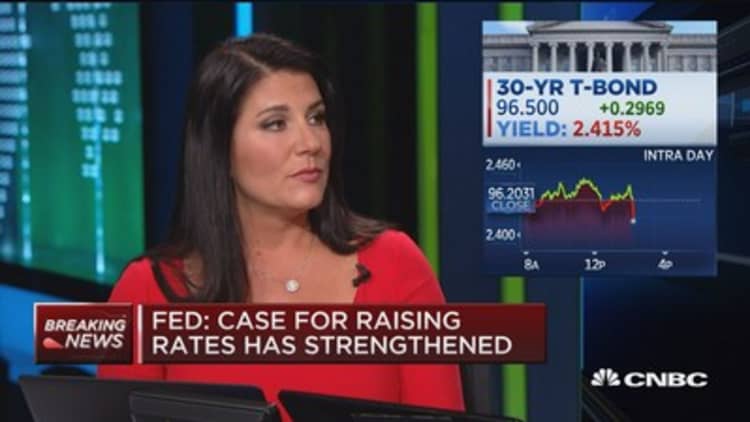
The Federal Reserve is doing long-term harm to the economy by not hiking interest rates, David Kelly, chief global strategist at JPMorgan Funds, said Wednesday.
The central bank opted to leave rates unchanged at its September meeting but set up the likelihood of an increase before the end of the year.
"The economy has hit every target they have set. And we've got an inappropriate level of interest rates which is distorting asset markets, blowing bubbles and will eventually end up in inflation. They're imposing long-term harm for no short-term good here," Kelly said in an interview with CNBC's "Power Lunch."
Sharply divided Fed
He believes there is an "unspoken" reason for the Fed's decision — the presidential election in November.
"If they had come out and hiked today and if we've had some sort of tantrum in the markets which amounted to a big sell-off in the stock market that could have had a political effect in this election."
Three members from the hawkish Fed bloc — Esther George, Loretta Mester and Eric Rosengren — dissented from the decision. It was the most "no" votes since the December 2014 meeting.
Danielle DiMartino Booth, a former advisor to the Dallas Fed and president of Money Strong, said Yellen would have gotten three dissents regardless of whether or not she raised rates. However, if it went the other way, the dissenters would have been Fed governors.
"The optics would have been worse," she said, noting that a governor has not dissented since 2005.
"I think she would rather have had three regional presidents dissent than have an actual mutiny on her own board," DiMartino Booth added.
— CNBC's Jeff Cox contributed to this report.


